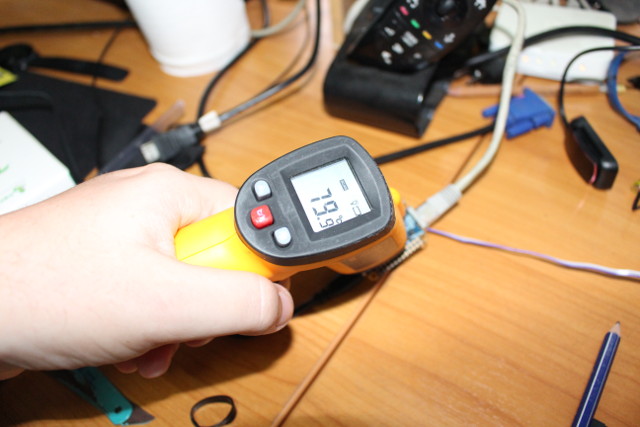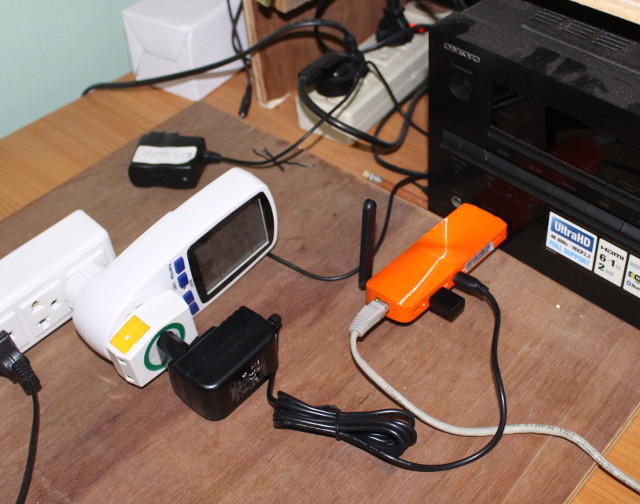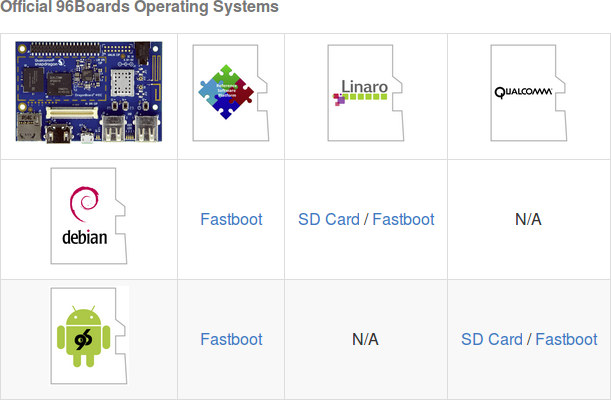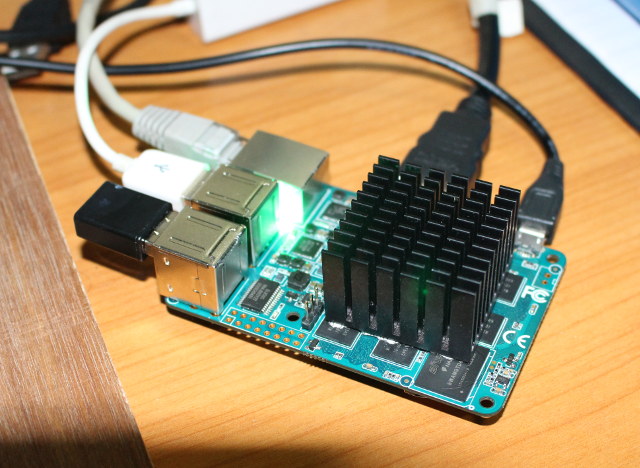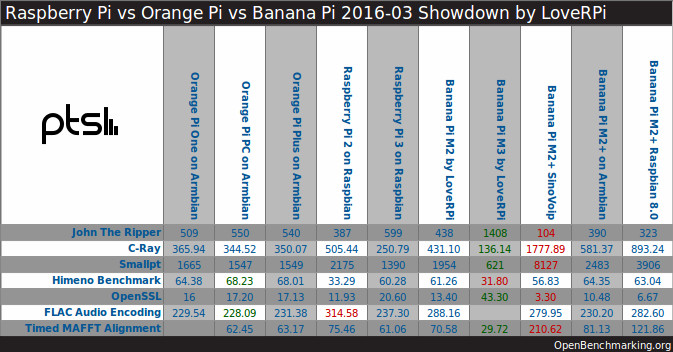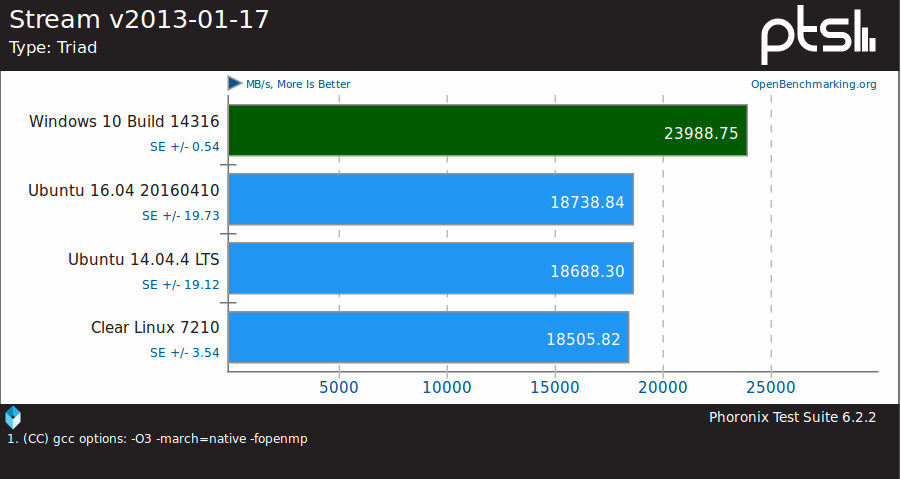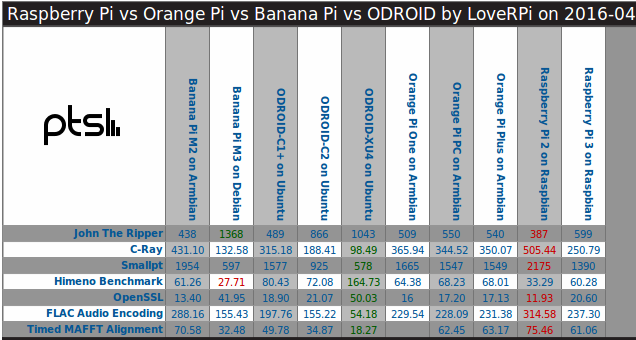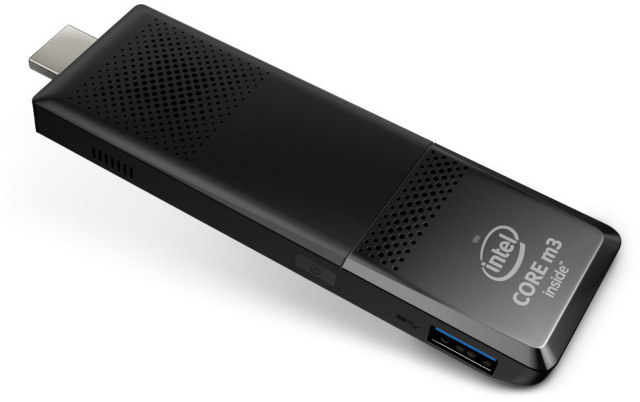We’ve already seen how to setup NanoPi NEO with Ubuntu Core, and while it’s mostly designed as an IoT node, for example to control relays over Ethernet or the Internet, I’ve still decided to see how it would perform under load by running Phoronix benchmarks, and then network and storage (micro SD card provided by FriendlyARM). It’s a small board, so we should expect it to heat a lot under load, especially it does not come with an heatsink by default. Also bear in mind that performance may dramatically change depending on the software implementation, and for the test, I’m using the company’s Ubuntu Core firmware. Before start the benchmark, I noticed that QTe-Demo was running in the background, probably because it was used on their other board with video output or LCD. but it’s taking some CPU usage, and is absolutely not needed here. To disable it, edit /etc/rc.local, […]
Star Cloud PCG02U Ubuntu 14.04 TV Stick Review
Star Cloud PCG02U is the first Ubuntu product from MeLE. After taking a few pictures of the TV stick and the board, I’ve tested the performance and functionality of the device. First Boot and Setup You can either connected the stick directly into an HDMI port, or using the provided female to female adapter via an HDMI cable. I’ve opted to insert the device directly into the AUX port of my Onkyo A/V receiver itself connected to my TV. Since there’s only one USB host port, USB keyboard and mouse are not convenient since it would add a USB hub, so I went with Logitech MK270r wireless mouse & keyboard combo instead. You can either used Ethernet or WiFi for Internet connectivity, and I opted for the latter for most of the review, but WiFi is also working fine. The final step is to connect the power supply into the […]
Debian on DragonBoard 410c Development Board
I purchased Qualcomm DragonBoard 410c development board last year, and first tested it and run some benchmark on the 96Boards compliant hardware with Android. I found that it was still work-in-progress, and decided to wait before trying Debian on the board. I’ve now done so, and will report by experience installing Debian Linux, playing with the board, and running Phoronix benchmarks to compare it to other ARM Linux boards. Installing Debian on DragonBoard 410c The first challenge is to navigate through the documentation that is not always clear or up-to-date. I eventually ended up on DragonBoard 410c Wiki on Github. You then have to decided which image you want. While there are two official operating systems with Android and Debian, you can three “entities” releasiong their own images. For Debian specifically, you have the Linaro image, and Reference Platform Build (RPB) image. I could not find any changelog or known […]
Android and Linux Benchmarks on MiQi Development Board
MiQi is an upcoming low cost development board powered by Rockchip RK3288 SoC that will sell for $35 with 1GB RAM and 8GB storage, and $69 for the version with a 2GB / 32GB combination. Since Rockchip RK3288 was launched in 2014, most available benchmarks were made on Android 4.4, and since MiQi is the first low cost board based on the processor, other RK3288 based board such as FireFly have not been that popular. So I’ve decided to run updated benchmarks in MiQi both in Android 5.1 and Linux (Lubuntu 14.04), which was easy since a dual boot image is pre-installed. But since I received an early sample without heatsink, I found a spare heatsink added some thermal paste and placed it on top of the processor and partially on RAM and eMMC flash. MiQi Board Android 5.1 Benchmarks I ran Antutu both using 1080p60 and 2160p30 video output, […]
Software Matters, or How SinoVoIP Crippled Banana Pi M2+ Performance.
The most common way to use a development board is to simply go to the manufacturer website, and download the images from there. They are the ones who made the hardware after all, and they should be the most knowledgeable about their platform. But it may not always be true as tkaiser found out when he ran some Phoronix benchmarks on Banana Pi M2+ (aka BPI M2+) board with SinoVoIP (the manufacturer), Armbian, and Raspbian images. The results speak for themselves. The last three columns are what is of interest here, and in some benchmark Banana Pi M2+ is about 3 times slower with SinoVoIP image compared to Armbian, while with others the performance is quite similar. John The Ripper password cracker benchmark shows a massive difference between distributions… … while FLAC audio encoding not so much. So what’s going on here? First Jon the Ripper is a multi-threaded applications, […]
Windows Subsystem for Linux (Ubuntu Bash on Windows) Benchmarked Against Native Ubuntu 14.04 and 16.04
Microsoft recently announced that they brought Ubuntu userspace to Windows, and that this features will be officially released in Windows 10’s Anniversary Update and called Windows Subsystem for Linux. But people part of the company’s insider program can already try the beta version of “Bash on Windows”, and Phoronix ran some benchmarks in bash in Windows 10, and repeated the tests in Ubuntu 16.04, Ubuntu 14.04, and Clear Linux. The test machine was based on an Intel Xeon E3-1280 v5 Skylake CPUwith 16GB of RAM and 120GB Samsung 850 EVO SSD. Many of the results show Windows Subsystem for Linux (I’ll just call it Windows 10 in the rest of the post) just performing a little slower than on the Linux distributions, but there are also some outliers, which I’m going to cover here. The most surprising results is when Windows 10 clearly outperforms Linux at its own game which […]
Low Cost Development Boards Linux Benchmarks – Raspberry Pi vs Banana Pi vs Orange Pi vs ODROID
LoveRPi, a distributor and reseller of electronic boards and accessories, has run benchmarks from the Phoronix Suite on several low cost development boards: $46* Banana Pi M2 based on Allwinner A31s quad core Cortex A7 processor @ 1.0 GHz with Armbian (Ubuntu 14.04) $74* Banana Pi M3 based on Allwinner A83T octa core Cortex A7 processor @ 1.80 GHz with Debian 8.3 $32 ODROID-C1+ based on Amlogic S805 quad core Cortex A5 processor @ 1.5 GHz with Ubuntu 14.04 $40 ODROID-C2 based on Amlogic S905 quad core Cortex A53 processor @ 2.0 GHz with Ubuntu 16.04 $74 ODROID-XU4 based on Samsung Exynos 5422 quad core ARM Cortex-A15 @ 2.0GHz quad core ARM Cortex-A7 @ 1.4GHz with Ubuntu 15.10 $10 Orange Pi One based Allwinner H3 Cortex A7 processor @ 1.2 GHz with Armbiam (Debian 8.3) $15 Orange Pi PC based on Allwinner H3 Cortex A7 processor @ 1.3 GHz with […]
Intel Core m3 Skylake Compute Stick Benchmarked, Tested with Ubuntu 16.04 and Chromium OS
Intel unveiled five new Compute Sticks for 2016, with two Cherry Trail models, and three Skylake Core M models namely STK2M3W64CC and STK2MV64CC based on Intel Core m3-6Y30 processor, as well as STK2MV64CC with a more powerful Core m5-6Y57 vPRO processor. Ian Morrison (Linuxium) managed to get an early sample of STK2M3W64CC running Windows 10 on 4GB RAM and 64GB storage, and posted some benchmarks, as well as results of his experimentations with Ubuntu and Chrome OS in the Intel section of G+ MINI PCs community and his own website. He started by running some standard benchmarks in Windows 10 including CrystalDiskMark (storage performance), Passmark8, and 3DMark, and while the storage performance is underwhelming, the processor is clearly and noticeably faster than Braswell, and Cherry Trail processors in terms of CPU and GPU performance based on comparisons with Tronsmart Ara X5 (x5-Z8300), Kangaroo Mobile Desktop (x5-Z8500), Voyo V3 (x7-Z8700), and […]


